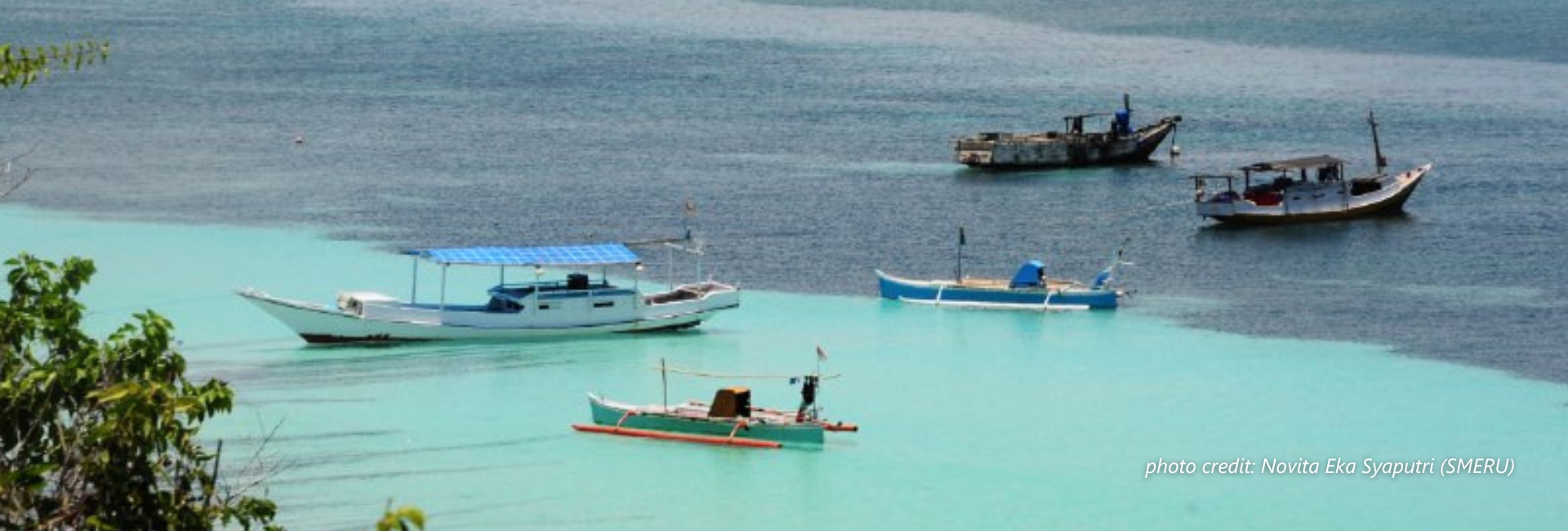Inequality assessments and metrics are essential to the well-being of people living in marine protected areas (MPAs) as well as the success of MPA management. Yet, inequality assessments and metrics are largely absent in the design, implementation, and management of MPAs.
This research specifically explores the dynamics of inequality in MPAs in Indonesia and factors that correlate with it both at macro and micro levels. It looks at, among others:
- The nature of inequality within communities in MPAs (who is left behind and who is better off in various dimensions of welfare).
- Linkages between inequality and economic activities (such as the impact of tourism or the impact of changes in the community’s livelihoods).
- Linkages between inequality and environmental condition (such as environmental degradation or conservation level).
- Linkages between inequality and MPA governance (such as community participation in decision-making and/or in monitoring MPA conditions; aspects of management plan as well as its implementation; and monitoring, evaluation, and learning in MPA management).
The research result is expected to provide better knowledge of how inequalities influence biological and social outcomes in MPAs and how to incorporate inequality assessments and indicators into existing MPA policies at every level of governance in Indonesia.
To develop a toolbox for mainstreaming inequalities in the design, implementation, and management of MPAs.
The toolbox will be used in training and capacity-building activities of multiple administrative entities in charge of MPAs in Indonesia in an ulterior phase of the project. The toolbox will contain all the recommendations and findings from the research. It targets policy makers and practitioners tasked with designing and managing MPAs.
We develop the framework using quantitative and qualitative approaches. We use secondary data for analysis at the macro level, where the level of analysis will be determined by data availability.
For analysis at the micro level, we use a qualitative approach based on case studies in three villages, each located in
- Savu Sea in Nusa Tenggara,
- Nusa Penida in Bali, and
- North Minahasa in North Sulawesi.
Sample villages represent the general characteristics of the communities in each MPA and are determined based on initial consultation with local stakeholders. We interview administrative entities and other relevant stakeholders at each location at the provincial, district, sub-district, and village levels. We also conduct one FGD with administrative entities and relevant stakeholders at the district or sub-district level. We collect data in each village through in-depth interviews with formal and informal village leaders and selected households, FGDs with village leaders and relatively poor communities comprising adult men, adult women, young men and women, and direct observation of local conditions.




